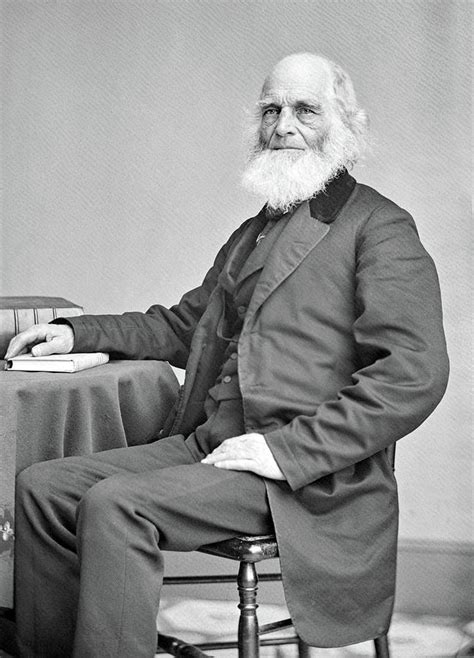Top 117 Quotes & Sayings by William C. Bryant - Page 2
Explore popular quotes and sayings by a poet William C. Bryant.
Last updated on April 19, 2025.
A silence, the brief Sabbath of an hour,
Reigns o'er the fields; the laborer sits within
His dwelling; he has left his steers awhile,
Unyoked, to bite the herbage, and his dog
Sleeps stretched beside the door-stone in the shade.
Now the gray marmot, with uplifted paws,
No more sits listening by his den, but steals
Abroad, in safety, to the clover-field,
And crops its juicy-blossoms.
Can anything be imagined more abhorrent to every sentiment of generosity and justice, than the law which arms the rich with the legal right to fix, by assize, the wages of the poor? If this is not slavery, we have forgotten its definition. Strike the right of associating for the sale of labor from the privileges of a freeman, and you may as well bind him to a master, or ascribe him to the soil.
The groves were God's first temple. Ere man learned To hew the shaft, and lay the architrave, And spread the roof above them,--ere he framed The lofty vault, to gather and roll back The sound of anthems; in the darkling wood, Amidst the cool and silence, he knelt down And offered to the Mightiest solemn thanks And supplication.
So live, that when thy summons comes to join, The innumerable caravan which moves, To that mysterious realm where each shall take, His chamber in the silent halls of death, Thou go not, like the quarry-slave at night, Scourged by his dungeon, but, sustained and soothed, By an unfaltering trust, approach thy grave, Like one who wraps the drapery of his couch, About him, and lies down to pleasant dreams.
It is a sultry day; the sun has drunk
The dew that lay upon the morning grass;
There is no rustling in the lofty elm
That canopies my dwelling, and its shade
Scarce cools me. All is silent, save the faint
And interrupted murmur of the bee,
Settling on the sick flowers,
And then again Instantly on the wing.
Lo! while we are gazing, in swifter haste
Stream down the snows, till the air is white,
As, myriads by myriads madly chased,
They fling themselves from their shadowy height.
The fair, frail creatures of middle sky,
What speed they make, with their grave so nigh;
Flake after flake,
To lie in the dark and silent lake!
I gazed upon the glorious sky
And the green mountains round,
And thought that when I came to lie
At rest within the ground,
'Twere pleasant, that in flowery June
When brooks send up a cheerful tune,
And groves a joyous sound,
The sexton's hand, my grave to make,
The rich, green mountain-turf should break.
Oh, Constellations of the early night
That sparkled brighter as the twilight died,
And made the darkness glorious! I have seen
Your rays grow dim upon the horizon's edge
And sink behind the mountains. I have seen
The great Orion, with his jewelled belt,
That large-limbed warrior of the skies, go down
Into the gloom. Beside him sank a crowd
Of shining ones.
Ye winds ye unseen currents of the air,
Softly ye played a few brief hours ago;
Ye bore the murmuring bee; ye tossed the air
O'er maiden cheeks, that took a fresher glow;
Ye rolled the round white cloud through depths of blue;
Ye shook from shaded flowers the lingering dew;
Before you the catalpa's blossoms flew,
Light blossoms, dropping on the grass like snow.
War, like all other situations of danger and of change, calls forth the exertion of admirable intellectual qualities and great virtues, and it is only by dwelling on these, and keeping out of sight the sufferings and sorrows, and all the crimes and evils that follow in its train, that it has its glory in the eyes of men.























